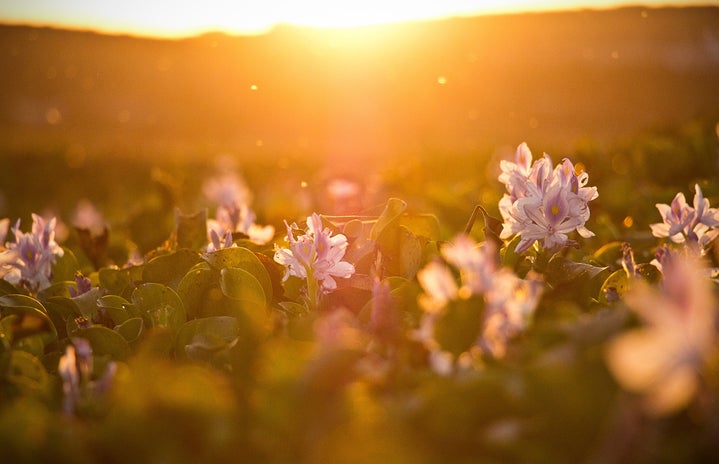There are many different types of communities, as there are flowers. Both dependently interconnecting and balancing one another in a symbiotic relationship. Every living thing has a microbiome, including people and flowers. A microbiome is a series of gut bacteria consisting of tiny microbes that affect the way you feel, and how you take in nutrients and embrace information from your food (Sakara). This is called your Gut Flora, meaning flowers in your gut.
The vitality of a community depends on diversity, just as nature depends on biodiversity. And as essential flowers are to a biome, a thriving community’s gut flora is essential to their health. When each person is thriving within themselves through food it creates a butterfly effect of good health being spread like wildflowers. However, before a flower blooms, it is first a seed. This seed sees many places…or doesn’t. This can be true for rural communities and the people within them.
Small rural communities are at a disadvantage. Lively greens, vibrant fruit, healthful proteins, and fresh bread are all at an immense astray. Access to organic food for many individuals is a privilege many are not welcome to have. Wilting produce, freezer-burned fish, and stale bread is often the choice for non-processed grocery options. The inequality is blatant between the advantages and disadvantages small communities have compared to urban developments.
Students can advocate, inspire, and be change-makers for rural communities. Help grow local gardens, stand up for state-funded food programs, support local farmers, and most importantly raise your voice for a better future. Why is this important? 1 in 5 Americans or around 60 million people live in rural America (census.gov). This means a large amount of the population are at a disservice when it comes to organic quality food. Unless they are purchasing locally grown or sourced products (which is often expensive) it can be a struggle to eat a healthful diet. The knowledge of organic food is not the issue, it is the lack of organic food itself.
What is the solution? College students have more power than anyone else when it comes to this food pandemic. They are the leaders of education, pioneers of research, and innovation, and the leading forces towards positive impacts in not only their communities but wherever they go. As a student, there is an abundance of resources for positive change, like there are many seeds that flourish into flowers. Be an impact and an influence, just please…don’t be a Wallflower.


